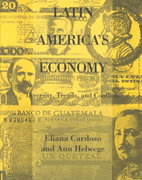Question
Consider the monetary approach in the long run and the general model where demand for real balances is a function of the nominal interest rate.
Consider the monetary approach in the long run and the general model where demand for real balances is a function of the nominal interest rate. Suppose that foreign GDP growth rate,g= 0, and that foreign nominal interest rate is 3%. Initially, domestic GDP growth rate,g, is positive and equals to (1+Z/10)%. Assume that foreign money supply remains constant at 2%. Before time T, domestic money supply grows at the rate=3%. At time T, a recession hit the home country, and its GDP growth rate falls to zero. At the same time, a misguided domestic central bank complicates the matters by decreasing the growth rate of money supplyMby 100 basis points, i.e.=1%. How will exchange rate behave in the long run? Show the paths of the key variables(M, M/P, i, P, E)before time T, at time T, and after time T. Indicate the slopes of each path and the magnitude of each jump (if any). What is the magnitude of change in domestic nominal interest rate at time T? Briefly explain your reasoning.
Where Z = 4.5%
Step by Step Solution
There are 3 Steps involved in it
Step: 1

Get Instant Access to Expert-Tailored Solutions
See step-by-step solutions with expert insights and AI powered tools for academic success
Step: 2

Step: 3

Ace Your Homework with AI
Get the answers you need in no time with our AI-driven, step-by-step assistance
Get Started


